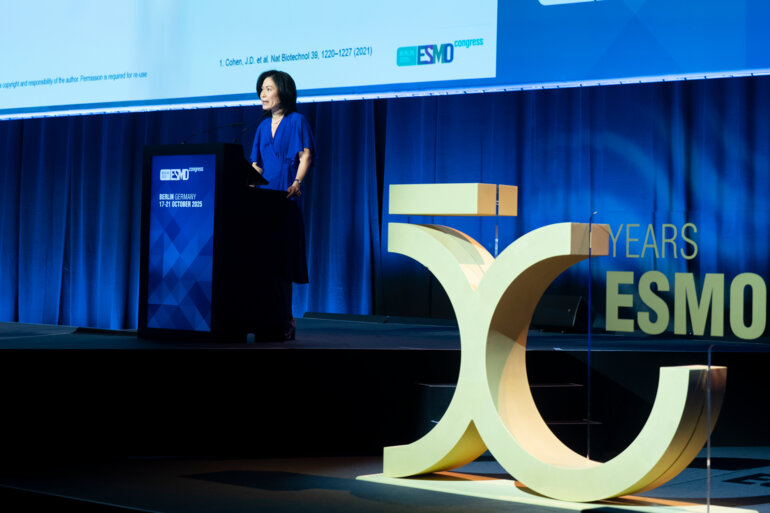
Is there still a role for anti-TIGIT therapy in hepatocellular carcinoma?
While the IMbrave152/SKYSCRAPER-14 trial showed no added benefit with tiragolumab, other studies are ongoing to explore the potential of additional immune checkpoint inhibition in combination with standard therapy

AI may be key to streamline patient allocation to clinical trials
As a proof of concept, an AI-powered large language model matching platform shows promise in patient selection

How AI is expediting clinical research: the use of synthetic real-world data
While synthetic real-world data may help overcome current challenges in clinical trials, it also introduces new complexities

Dual targeted therapy shows promise in mestastatic clear cell renal cell carcinoma
The combination of lenvatinib plus everolimus improved progression-free survival in the LenCabo trial, but toxicity must be carefully assessed

Combination improves endocrine response after CDK4/6 inhibition in ER-positive, HER2-negative advanced breast cancer
In the evERA BC trial, giredestrant plus everolimus led to a prolonged progression-free survival

Data from two novel TEAD inhibitors provide the first evidence for the efficacy and safety of targeted treatments in mesothelioma
In early phase studies, IAG933 and VT3989 led to encouraging disease control rates with manageable toxicity

Rethinking the limits of tissue-agnostic cancer therapy
The promises of a tumour-agnostic oncology are still challenged by conventional clinical trial design and regulatory processes

ctDNA-guided adjuvant chemotherapy in colon cancer: not ready for prime time?
Two studies fail to meet their primary endpoints, reinforcing the need to improve the sensitivity of ctDNA testing before it enters the clinic

Optimising cancer therapy in the era of technological progress
Findings from latest research reflect emerging opportunities in oncology to refine treatments by challenging current paradigms of care

Novel tissue-agnostic biomarker approaches could improve response to immunotherapy
Several studies describe pan-cancer approaches utilising the latest technology for better patient selection and outcomes
